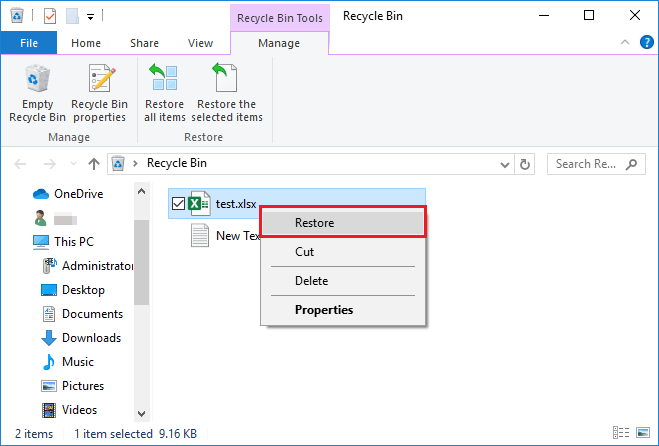5 Ways to Recover Deleted Excel Sheet

In the realm of digital productivity, few things are as disheartening as realizing that an important Excel sheet has been deleted. Whether it’s due to an accidental keystroke, a system glitch, or an intentional deletion that you later regret, the loss of valuable data can be a significant setback. But fear not! There are several methods you can employ to recover your deleted Excel sheet. Let’s explore five effective strategies to retrieve your lost data.
1. Check the Recycle Bin

Checking the Recycle Bin

The first step in the recovery process is checking your Recycle Bin. If you’ve deleted the Excel file by mistake:
- Navigate to your Recycle Bin on your Windows desktop.
- Look for the deleted file among the list.
- If you find it, right-click on the file and select ‘Restore’ to return it to its original location.
💡 Note: If the file isn't in the Recycle Bin, it might have been permanently deleted. In this case, move to the next recovery methods.
2. Use AutoRecover or Temporary Files

AutoRecover or Temporary Files

Microsoft Excel includes an AutoRecover feature that automatically saves your work at set intervals. Here’s how to recover from temporary files:
- Open Excel and go to File > Info > Manage Workbook.
- Click on Recover Unsaved Workbooks to see any autosaved versions.
- If you can’t find your document here, look in the ‘AutoRecover’ directory in Windows Explorer:
- Go to
C:\Users[YourUsername]\AppData\Local\Microsoft\Office\UnsavedFiles - Or
C:\Users[YourUsername]\AppData\Roaming\Microsoft\Excel</code> for autosave files.
3. Search for Backups

Searching for Backups

If you’ve configured backups or version history:
- Check your backup software or cloud storage services like OneDrive or Google Drive for previous versions of the file.
- If using OneDrive:
- Visit the OneDrive website, locate your deleted file, and restore from the recycle bin.
- Use the ‘Version History’ to retrieve earlier versions.
4. Use File Recovery Software

File Recovery Software

If the above methods don’t work, third-party recovery tools can scan your hard drive:
- Download reputable recovery software like Recuva, EaseUS Data Recovery, or Disk Drill.
- Follow the software’s instructions to scan for deleted files.
- Select the Excel sheet from the list of recoverable files and restore it to your computer.
Software
Features
Approximate Price
Recuva
Deep scan, simple interface, free basic version
$25 for Professional
EaseUS Data Recovery
High recovery rate, preview feature, different editions available
$69.95
Disk Drill
Data protection, recovery vault, multiple file system support
$89 for Pro

💡 Note: Be cautious when installing recovery software. Download from official websites to avoid malware.
5. Professional Data Recovery Services

Professional Services

If you’ve exhausted all options and the file remains lost, consider:
- Contacting a professional data recovery service.
- These services can provide a higher success rate, especially for corrupted or heavily overwritten files.
Professional recovery services can be costly, but they are sometimes the only solution when all other methods fail, particularly for critical business or personal data.
In cases where files are deemed beyond recovery, the focus shifts towards prevention. To avoid data loss in the future:
- Regularly save your work: Use Excel’s auto-save feature or manually save frequently.
- Backup your data: Set up automatic backups to external drives or cloud storage.
- Use version control: Implement version control in your workflow to track changes and recover from any point in time.
By following these steps, you’ve not only increased your chances of recovering your lost Excel sheet but also learned valuable lessons in data management and protection. Remember, sometimes recovery is possible, but prevention is always better than cure.
Can I recover a file deleted from OneDrive?

+
Yes, you can recover a file from OneDrive’s Recycle Bin within 30 days after deletion. If it’s beyond that period, check previous versions or contact Microsoft Support.
How often should I backup my data?

+
For critical data, daily backups or using real-time cloud backup services can ensure minimal data loss.
What’s the difference between AutoRecover and AutoSave?

+
AutoRecover saves an unsaved file at regular intervals, allowing you to recover from crashes. AutoSave, available in newer versions of Office 365, automatically saves changes to cloud storage services like OneDrive or SharePoint.



